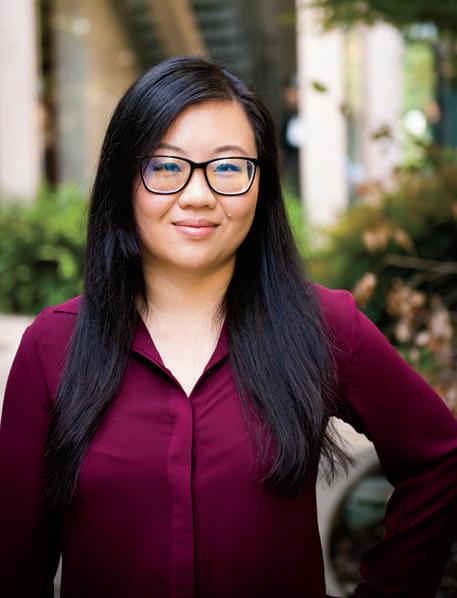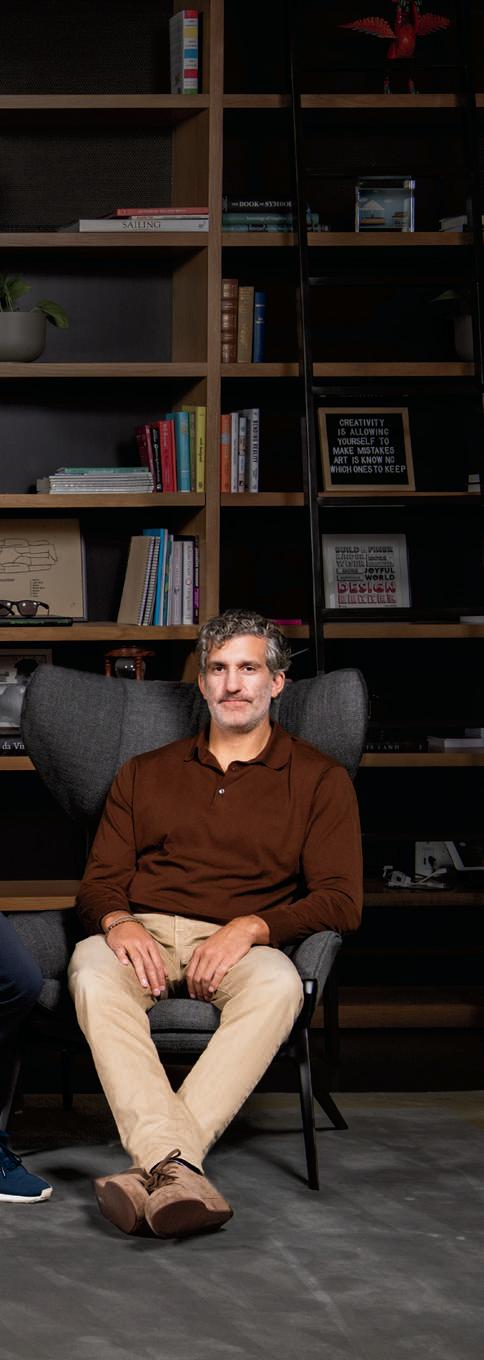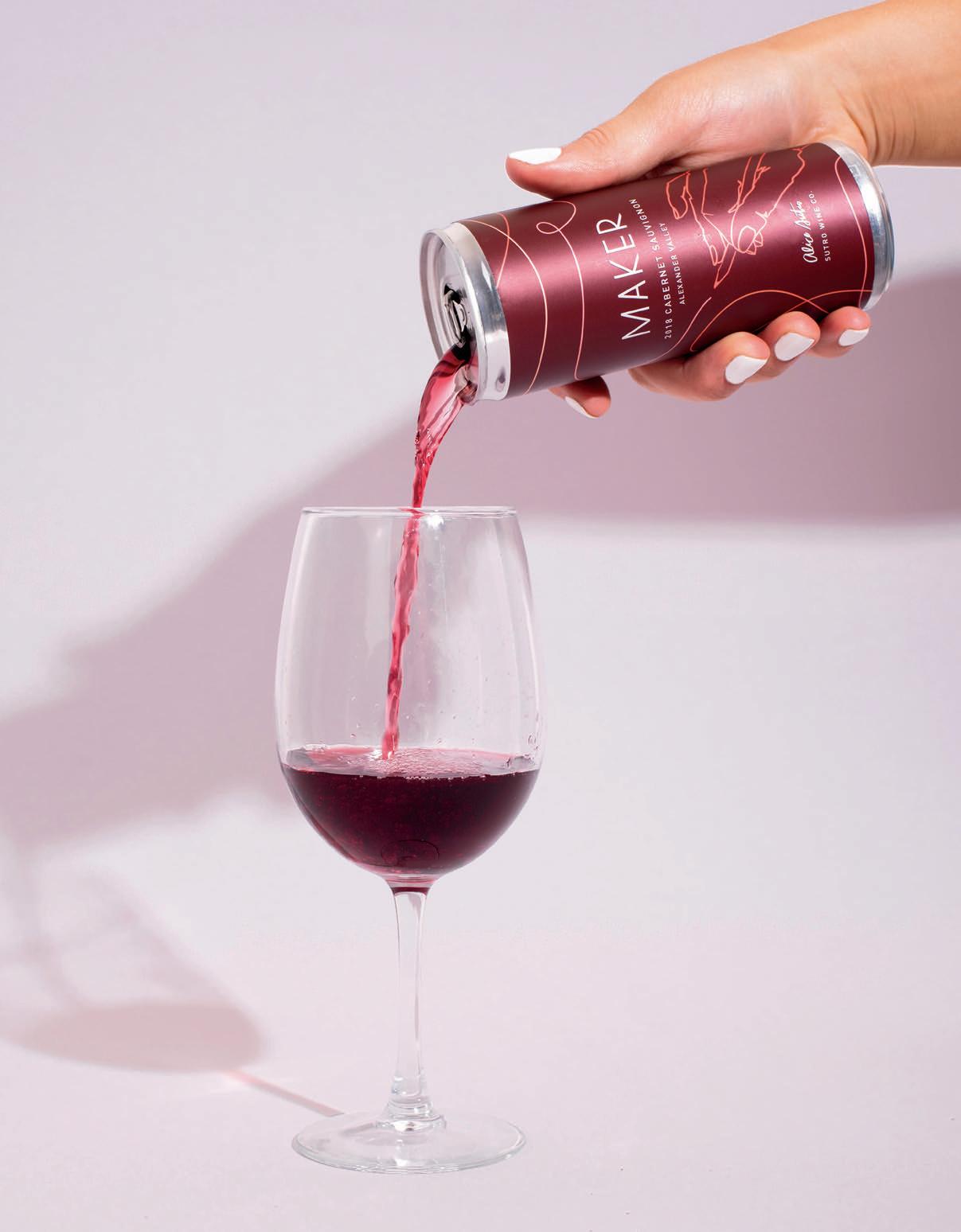
4 minute read
Human Connection
As conversations and concerns about artificial intelligence enter the public realm, technology investor Joanne Chen argues that we have less to be worried about than we think.
By Daniel Jewett
WHEN JOANNE CHEN WAS STUDYING electrical engineering and computer science at UC Berkeley, she joined a campus competition to find a startup, study it and pitch it to a panel of venture capitalists. The panel was surprised when Chen and her teammates found and pitched a financial tech company the investors were already looking at, Mint.com (which would later be sold to Intuit for $170 million). Needless to say, Chen and her team won first prize.
“It really stuck with me because I thought ‘That was pretty easy,’ ” says Chen, who is now a general partner at Palo Alto’s Foundation Capital (www.foundationcapital. com), where she was brought in nine years ago to focus specifically on AI startup investment opportunities. “I thought maybe I should pursue this as a career.
“There is this big paradigm shift between teaching machines what to do deterministically to the machine learning and AI-based predictive model, meaning a computer can now predict, with some kind of confidence, what something might be,” she says, adding that people already use this technology every day when they receive Netflix recommendations or get a view of what traffic is going to look like when they leave their house. “The change is a massive one because most of the things that we do in life are predictive, so that opens up the ability for machines to augment or automate a lot of what we do. I think we’re going to see a dramatic shift in the world because of this technology.”
Chen says that what this will mean for other businesses remains to be seen. She thinks it’s a no-brainer that compa- nies would want to use something that makes their business more productive, generates more revenue or lowers costs. “If you don’t use that tool, could you still compete? I think the jury’s still out,” she says. “My guess is that every single organization 10 years from now will use machine learning to help their business in some capacity and there’s going to be new companies that are created with different business models that are built with this capability from the get-go.”
Chen says that some industries, like the legal industry, could see a whole new way of working, including ditching the hourly fee. “With generative technologies and large language models a lot of what lawyers do behind the scenes, which is very text driven, can be automated,” she says. “They can have fewer lawyers, who are focused on customer service up front with the machine doing 80 percent of the paperwork, and then they can change the business model to not charge on an hourly basis for that.”

Foundation Capital has helped launch a lot of tech-forward companies like Netflix, Jasper (one of the first generative AI companies), Cerebras, Anyscale, Eightfold.ai and many more, but she says it’s a risky business. “There’s like a million reasons why a business might not scale so we spend a lot of time with founders to understand what they’re good at, what they’re not good at, and we can help them build their team to complement some of the things that are missing,” she says. Early on, the cost to build large language models on a per-company basis was too much for the companies to scale properly — that is, until GPT-3 came along. “When that launched in 2020 and no one noticed, we were like, ‘OK, this could be an inflection point.’ ”

Chen thinks that the reason the public is more engaged now in the topic of AI is simple: “People who do not have a Stanford degree or haven’t worked at Google as an engineer, who couldn’t maybe even spell AI before, can now manipulate an AI machine,” she says, pointing out that the technology has been in development for 70 years and has been used commercially since 2000.
So the big question: Is AI going to destroy our lives and society and is it going to replace human connection? Chen thinks such concerns are overblown and are probably obscuring the technology’s possible upsides. “Every single child will have a personalized tutor that is infinitely patient and infinitely energetic for the rest of his or her life. Every senior citizen who has a shortage of care and companionship is going to have the same thing.”
And human connection? “The AI representation of the world is still built on relatively limited data. Think of the spectrum of our emotions and experiences and facial expressions and everything that is not captured — for a machine to accurately depict a human, we’re so far away from it,” she says. “Not only will AI not replace human relationships; I think human relationships will be valued significantly more in a world where some of the other stuff can be automated.”
MAKER WINE IS ON A MISSION to share “the why behind the wine” and, along the way, market a canned beverage that really stands apart.
Maker (www.makerwine.com) offers high-quality wines in a can from small, diverse wineries, sharing the why behind the wine through a QR code on the back — leading curious drinkers to the winemaker’s tale on the brand’s site.
This is not the sugar-filled, vague red-blend, mass-produced canned wine you’ve huffed at in the past. Maker is putting premium, sugar-free, award-winning wines in a can, making them more sustainable (100 percent recyclable and easier to ship), approachable (no more blankly staring in the wine aisle), portable (perfect pour for a picnic), and easy to finish on a weeknight (one can of Maker equals one-third a bottle of wine).

As the founders will tell you, it’s like “high-end wine slipped into something more comfortable.”
“Beyond our love of wine, we were really excited about the stories behind it,” says Sarah Hoffman, who co-founded Maker with Kendra Kawala and Zoe Victor four years ago and is eager to tell the winemakers’ backstories. “They all have unique stories that brought them to wine. But when you’re shopping at the grocery store you don’t really see that.”
The concept came to Hoffman while she was in business school at Stanford, and she shared the idea with classmate and eventual co-founder Kawala. From there, they hit the road and pitched the idea to dozens of wineries up and down the California coast.
“We would go to the wineries with Coca-Cola cans with paper taped around them to look like
By Annie Gieser










